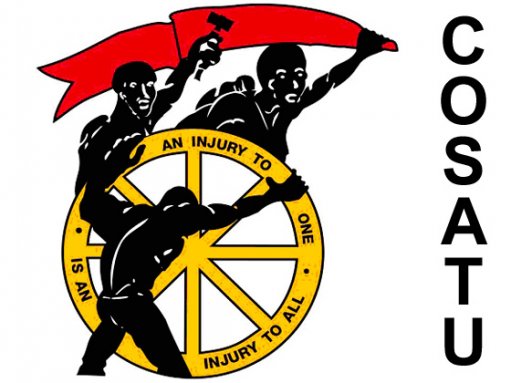
The Congress of South African Trade Unions (COSATU) has noted that the Department of Trade and Industry is reported to have refused to include the prohibition of export taxes in the economic partnership agreement (EPA) between the European Union (EU) and Southern African countries.
COSATU has been consistent in calling for a change in the structure of the economy from a colonial based economy which serves the interests of Western countries to an economy which benefits SA’s working class and the poor. Export taxes are necessary in order to ensure that minerals are processed and jobs are created in SA. The EU’s position to force developing countries to give up this right is a colonial trick to force SA to forever be a raw material supplier to the EU and a guaranteed market for EU manufactured goods.
COSATU urges government not to conclude any trade agreement with the EU unless her right to use export taxes and other trade measures is safeguarded. The trade relations between the EU and SA would not be mutually beneficial as long as SA does not process the minerals mined locally into value-added goods and does not determine the price of the minerals.
COSATU calls on the Treasury to come to the party and to impose export taxes on all strategic minerals such as platinum, chrome and gold and to determine the correct prices for these minerals. The use of export taxes is allowed under international law and the disinclination of the Treasury to the use of export taxes is entrenching SA’s economy as supplier of raw materials.
Whilst the dti may win the negotiations in excluding export taxes from the EPA, the elephant in the room is the Treasury’s conservative stance that if the market is not willing to beneficiate it should not be forced to so by export taxes.
COSATU calls on government to be true to its promise that this is the second phase of radical transition and this should be reflected in policies that seek to change the structure of the economy by among others imposing these taxes with immediate effect and regulating prices of minerals.